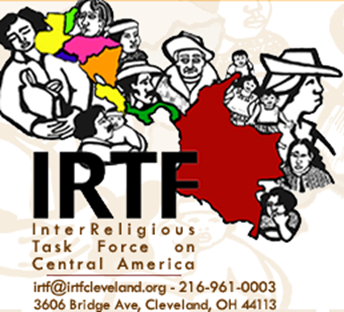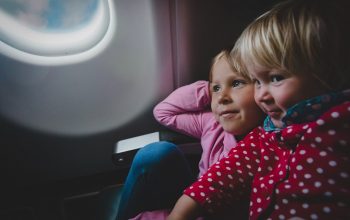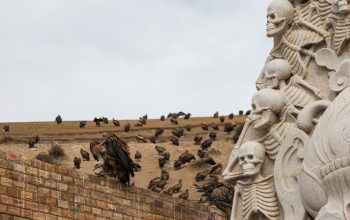by Michell Spoden
Faith groups often do great things in humanitarian areas, especially in cooperation with each other, as the following interview with Chrissy Stonebraker offers insights into some of these activities that are both practical and inspirational.
Michell: What is your name, age, title and where do you work?
Chrissy Stonebraker: Chrissy Stonebraker, 24, Co-Coordinator, InterReligious Task Force on Central America.

Michell: What additional credentials do you have?
Chrissy Stonebraker: Bachelor of Arts in International and Financial Management, Hiram College. Master of Arts/Master of Education in Higher Education Administration, Kent State University
Michell: Why do you love to do the work you do? Please share something inspirational.
Chrissy Stonebraker: I love working on the promotion of social justice and fair trade because I know fair trade has the power to transform communities. We often forget the people behind the goods that we use everyday. When I purchase a fair trade product I imagine the impact of my purchase. I can picture the artisan who made my necklace, the farmer that picked my coffee beans, and the factory worker who sewed my t-shirt.
Michell: What is the Inter Religious Task Force on Central America?
Chrissy Stonebraker: The InterReligious Task Force on Central America (IRTF) works to change US policies, corporate actions and consumer behaviors that undermine justice in the United States and abroad. We are committed to achieving peace, justice and human rights, in a systematic way through nonviolence.
Michell: What is Fair Trade?
Chrissy Stonebraker: Fair trade is a way of trading commodities between artisans, farmers, workers and the buyer. Fair trade empowers the oppressed voices of artisans, farmers and workers. It allows the producer to develop their community through education, improved quality of life, and economic stimulus. Fair trade supports humans rights, environmental sustainability, peace, social justice, solidarity, and nonviolence. Without a living wage producers can be exploited. Anything can be fair trade; fair trade just means that producers make a living wage for the work they put into their products. Currently the most popular fair trade products include chocolate, coffee, tea, bananas, and jewelry. Some products are gaining more momentum like olive oil, clothing, hygiene, wine/beer, nuts, and other fruits and vegetables.
Michell: How does fair trade differ from free trade and what is their mutual relation, if any?
Chrissy Stonebraker: The difference between fair trade and free trade is the standard of worker’s rights. Free trade does not have a minimum wage for the worker. For example, a coffee farmer in Ethiopia receives income based on the price of coffee in buying countries. This income is often less than a dollar a day. A living wage is the amount a farmer needs to make to live a modest life. A living wage provides a farmer with food, water, and shelter, for the farmer and the farmer’s family; it allows the farmer’s community to benefit from the living wage. Most farmers will take the money they make and put it in their community to build school, medical center, or invest in the community. Free trade limits development in impoverished countries. It is important to remember that fair trade is not a brand; it is a certification for commodities. There are varying levels of fair trade; some fair trade certification processes have different standards.
Michell: Can you please tell us about your new program, the Rapid Response, and how you came up with the idea?
Chrissy Stonebraker: The Rapid Response Network (RRN) is a group of individuals who have given us permission to sign and send letters in their name to officials in Central America and the US when we receive urgent alerts about human rights cases in Central America. The cases include: death threats, torture, assassination, or other abuses. Volunteers write a response letter to government officials in Latin America and the US, urging protection/justice for the victims. We attach names and addresses of people from the RRN. We send copies of the letters and case updates to RRN members and post them on our website.
Michell: How successful has it been so far?
Chrissy Stonebraker: We respond to 72 cases each year. Government officials might respond to us in maybe 15-20 of those cases. Whether or not we receive a direct response, we pay attention to those cases through the civil society organizations that the victims belong to.
Michell: Sometimes there are incidents like the recent controversial film that aroused many Muslims groups and masses to angry protests. Do these make it difficult to work toward inter-faith harmony?
Chrissy Stonebraker: Negative portrayals of various religious groups hurt all efforts of systemic transformation. IRTF calls together ALL people (locally, nationally and internationally) to walk in solidarity with oppressed people in Central America and Colombia to achieve peace, justice, human rights and systemic transformation through nonviolence.
Michell: Do you think media is playing an appreciable role in bringing people of various faiths together
Chrissy Stonebraker: As with all things in life, there are positive and negative articles coming out all the time. The media does not always focus on positive stories of interfaith cooperation. However, I think the current youth generation believes in solidarity, collaboration and cooperation among people of all different types. Young adults are not interested in wasting time putting people into boxes. Although some people see social media as a hindrance to meaningful relationship building, many young adults inherently know that the world is deeply interconnected because of it. This means they are interested in moving through the world ethically without boundaries. And, they can create their own media at any moment.
Michell: Can you suggest any helpful publications (books, journals etc) that may help an average person understand the importance of inter-religious harmony?
Chrissy Stonebraker: I admire the work of groups like the Inter Faith Youth Corp in Chicago who are working to positively change perceptions of interfaith collaboration. Their founder, Eboo Patel, has written several awesome books. Also, you can find more information about fair trade from, the Fair Trade Federation; about chocolate from, Equal Exchange; and about wine from, www.coopamerica.org/programs/fairtrade/fairtradewine.cfm.
About the Interviewer
Michell Spoden is the author of Stricken Yet Crowned and is also pursuing a transitional housing project for woman with an agricultural aspect. She has a degree in Business Science Administration and is finishing her bachelor’s in Project Management.


